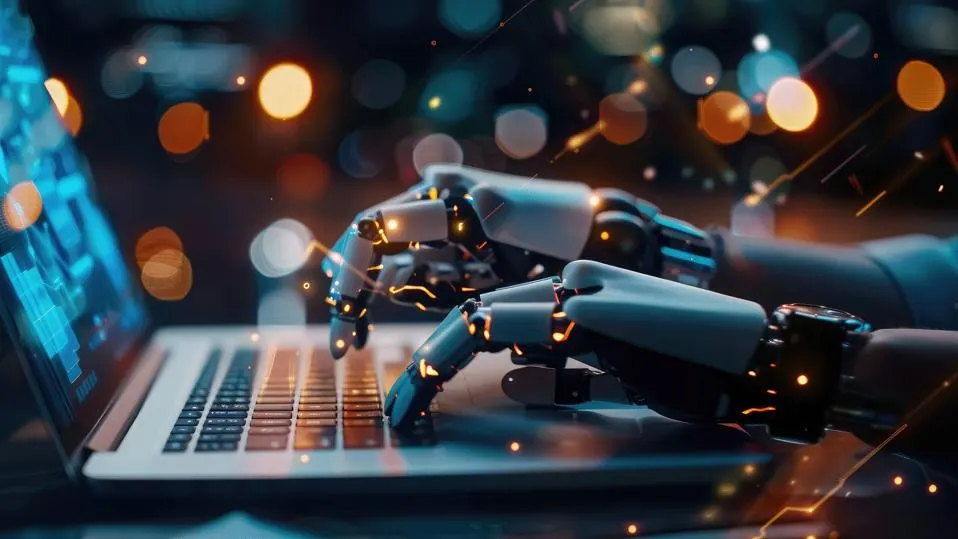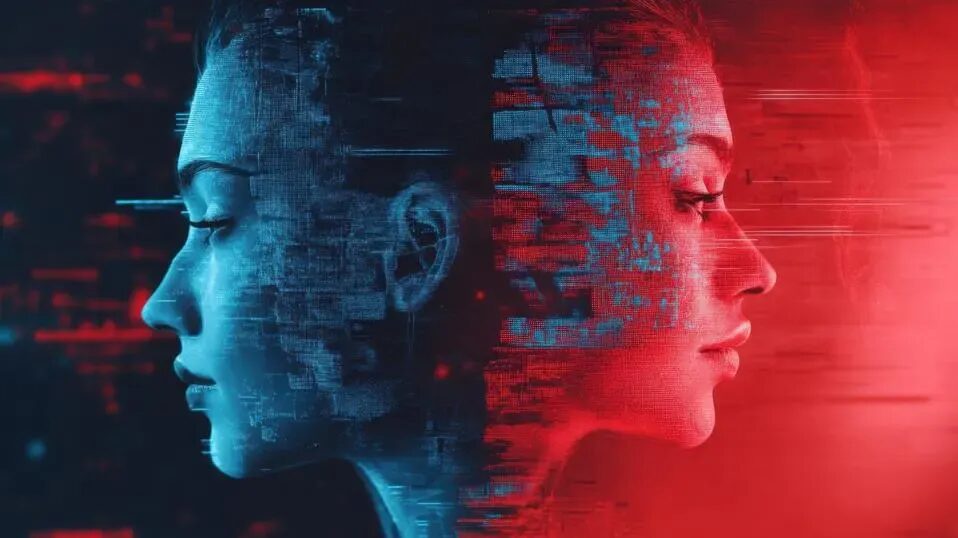How Generative AI Will Change The Jobs Of Computer Programmers And Software Engineers
10 June 2024
One of the most powerful features of language-based generative AI tools like ChatGPT, Microsoft’s Copilot, or AWS Code Whisperer is the ability to create computer code.
After all, code is just another language – one that’s designed to be understandable by both humans and machines – and LLMs like GPT-4 are able to analyze, sequence and predict it just as they can with natural languages.
Automation, auto-complete and procedural generation of code have been part of the software engineering workflow for many years. But generative AI goes a step further by potentially automating the entire process, from code design to testing and debugging.
Does this mean that software developers are now redundant? Well, No! Human expertise will still be essential for creative problem-solving challenges and overcoming problems with AI that will likely be around for some time. Instead, I believe humans will leverage generative AI to speed up their work and help them develop new, more efficient solutions, making their skills even more valuable in business and industry.
So, here’s an overview of how I believe the role of programmers and software engineers will evolve as these tools play an increasingly big role in their day-to-day activities.

Automated Code Generation
Software engineering can often involve repetitive, time-consuming tasks such as refactoring existing code, standardizing code structures and creating documentation.
With generative AI, code to carry out basic functions such as sorting lists or reading and processing data from APIs can be generated in seconds, dramatically reducing the time spent on these mundane but necessary tasks. This means developers can focus their time on more creative elements of their work, such as strategic design and creative problem-solving.
It can also suggest more streamlined ways to structure code and detect when sections of code may be redundant or use more resources than is necessary, helping programmers to create more efficient software.
While most AI-generated code is currently created through natural language processing, it’s also becoming possible to create code from images. For example, there are tools that make it possible to sketch up the outline for a tool or application as a visual representation, such as a flow chart, and have it converted into executable code.
Overall, I believe this will lead to software engineers spending less time writing code and more time creating solutions.
Faster Testing and Debugging
Testing and debugging are a vital but often time-consuming element of software development. Generative AI tools, particularly those such as Github Copilot, OpenAI Codex and AWS Codewhisperer that are fine-tuned for coding tasks, are great for automating test cases and identifying potential bugs before they cause problems. They can analyze code to predict where bugs are likely to pop up and assist in debugging by suggesting fixes on the fly.
Already, many developers are finding that this can reduce development cycles and help create more reliable and trustworthy software. It can even explain why bugs are occurring in natural human language, helping to educate coders to become better at their craft.
Coding Generative AI Applications
Of course, generative AI applications are useful for many people besides coders – and it will most likely be coders who will be responsible for making them available to everyone else!
Generative AI lets us create tools and applications that provide customized experiences with a high level of personalization, meaning that software tools used by everyone from doctors and lawyers to artists and designers will become more powerful, easy-to-use and flexible.
Coders with machine learning expertise will be essential when it comes to fine-tuning and customizing generative AI models for specific industries and niche use cases. As more professionals become aware of the transformative potential of generative AI on their workflows, coders with the ability to integrate generative AI functionality into “traditional” software platforms and packages will find themselves very much in demand.
The Changing Role Of Software Engineers
As is true of many other professions, the fundamental role of software engineers, coders and developers will evolve as intelligent, generative tools become increasingly omnipresent.
Instead of laboriously writing code line by line, they may find their roles within organizations and society shifting to become more supervisory and strategic.
Coders will learn new and emerging skill sets like prompt engineering, allowing them to move beyond the traditional workflows of code generation and build using the new technologies that are becoming available.
This will mean developing the ability to critically evaluate and assess code generated by machines while also identifying tasks where human intervention remains essential.
There will also be a need to understand issues like AI ethics, security and regulation, to ensure they’re working in a way that’s both responsible and compliant with emerging ethical and legal frameworks.
Putting all of this together, we can conclude that these roles are likely to be transformed in profound ways. Beyond simply creating new ways to go about day-to-day tasks, it will require a rethink of the aptitudes, skillsets and personality traits that make a great software developer. Get it right, and it is likely they will become more productive, more efficient and more critical than ever to the business success of their organizations.
Related Articles
The Great Skill Shift: How AI Is Transforming 70% Of Jobs By 2030
By now, “smart” versions exist of just about every home appliance, gadget and gizmos we can think of. However, manufacturers continue[...]
The 5 Cloud Computing Mistakes You Must Avoid This Year
By now, “smart” versions exist of just about every home appliance, gadget and gizmos we can think of. However, manufacturers continue[...]
Quantum Vs. Classical Computing: Understanding Tomorrow’s Tech Balance
By now, “smart” versions exist of just about every home appliance, gadget and gizmos we can think of. However, manufacturers continue[...]
Chat-GPT Danger: 5 Things You Should Never Tell The AI Bot
By now, “smart” versions exist of just about every home appliance, gadget and gizmos we can think of. However, manufacturers continue[...]
The New ROI: Rethinking Value in a World of AI-Augmented Work
By now, “smart” versions exist of just about every home appliance, gadget and gizmos we can think of. However, manufacturers continue[...]
Can Deepfakes Damage Your Health?
By now, “smart” versions exist of just about every home appliance, gadget and gizmos we can think of. However, manufacturers continue[...]
Sign up to Stay in Touch!
Bernard Marr is a world-renowned futurist, influencer and thought leader in the fields of business and technology, with a passion for using technology for the good of humanity.
He is a best-selling author of over 20 books, writes a regular column for Forbes and advises and coaches many of the world’s best-known organisations.
He has a combined following of 4 million people across his social media channels and newsletters and was ranked by LinkedIn as one of the top 5 business influencers in the world.
Bernard’s latest book is ‘Generative AI in Practice’.










Social Media